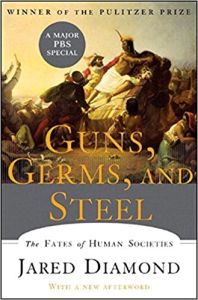
A review of
The review below was first published in the getAbstract Journal on Apr 18, 2018.
We’ve reviewed this title for you as we currently cannot offer a summary.
We’ve reviewed this title for you as we currently cannot offer a summary.
Reframing History
by David Meyer
Pulitzer Prize–winning historian Jared Diamond's landmark book details the prime forces driving 13,000 years of human history.
By the same author
Book




















Comment on this review